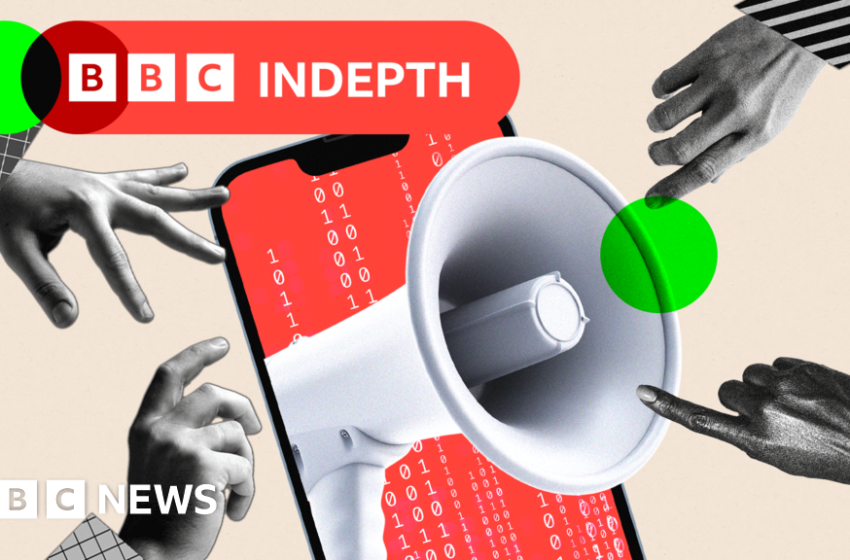No products in the cart.

[ad_1]
Our era has been labelled “the algorithmic society” – one in which, it could be argued, social media platforms and search engines govern speech in the same way nation states once did.
This means straightforward guarantees of freedom of speech in the US constitution can only get you so far, according to Jack Balkin of Yale University, external: “the First Amendment, as normally construed, is simply inadequate to protect the practical ability to speak”.
Professors Riemer and Peter agree that the law needs to play catch-up. “Platforms play a much more active role in shaping speech than the law currently recognises.”
And, they claim, the way in which harmful posts are monitored also needs to change. “We need to expand how we think about free speech regulation. Current debates focused on content moderation overlook the deeper issue of how platforms’ business models incentivise them to algorithmically shape speech.”
While Professor Candeub is a “free speech absolutist”, he’s also wary of the power concentrated in the platforms that can be gatekeepers of speech via computer code. “I think that we would do well to have these algorithms made public because otherwise we’re just being manipulated.”
Yet algorithms aren’t going away. As Bertram says, “The difference between the town square and social media is that there are several billion people on social media. There is a right to freedom of speech online but not a right for everyone to be heard equally: it would take more than a lifetime to watch every TikTok video or read every tweet.”
What, then, is the solution? Could modest tweaks to the algorithms cultivate more inclusive conversations that more closely resemble the ones we have in person?
New microblogging platforms like Bluesky are trying to offer users control over the algorithm that displays content – and to revive the chronological timelines of old, in the belief that offers an experience which is less mediated.
In testimony she gave to the Senate in 2021, Facebook whistleblower Frances Haugen said, external: “I’m a strong proponent of chronological ranking, ordering by time… because we don’t want computers deciding what we focus on, we should have software that is human-scaled, or humans have conversations together, not computers facilitating who we get to hear from.”
However, as Professor Narayanan has pointed out, “Chronological feeds are not … neutral: They are also subject to rich-get-richer effects, demographic biases, and the unpredictability of virality. There is, unfortunately, no neutral way to design social media.”
Platforms do offer some alternatives to algorithms, with people on X able to choose a feed from only those they follow. And by filtering huge amounts of content, “recommendation engines provide greater diversity and discovery than just following people we already know”, argues Bertram. “That feels like the opposite of a restriction of freedom of speech – it’s a mechanism for discovery.”
[ad_2]
Source link















